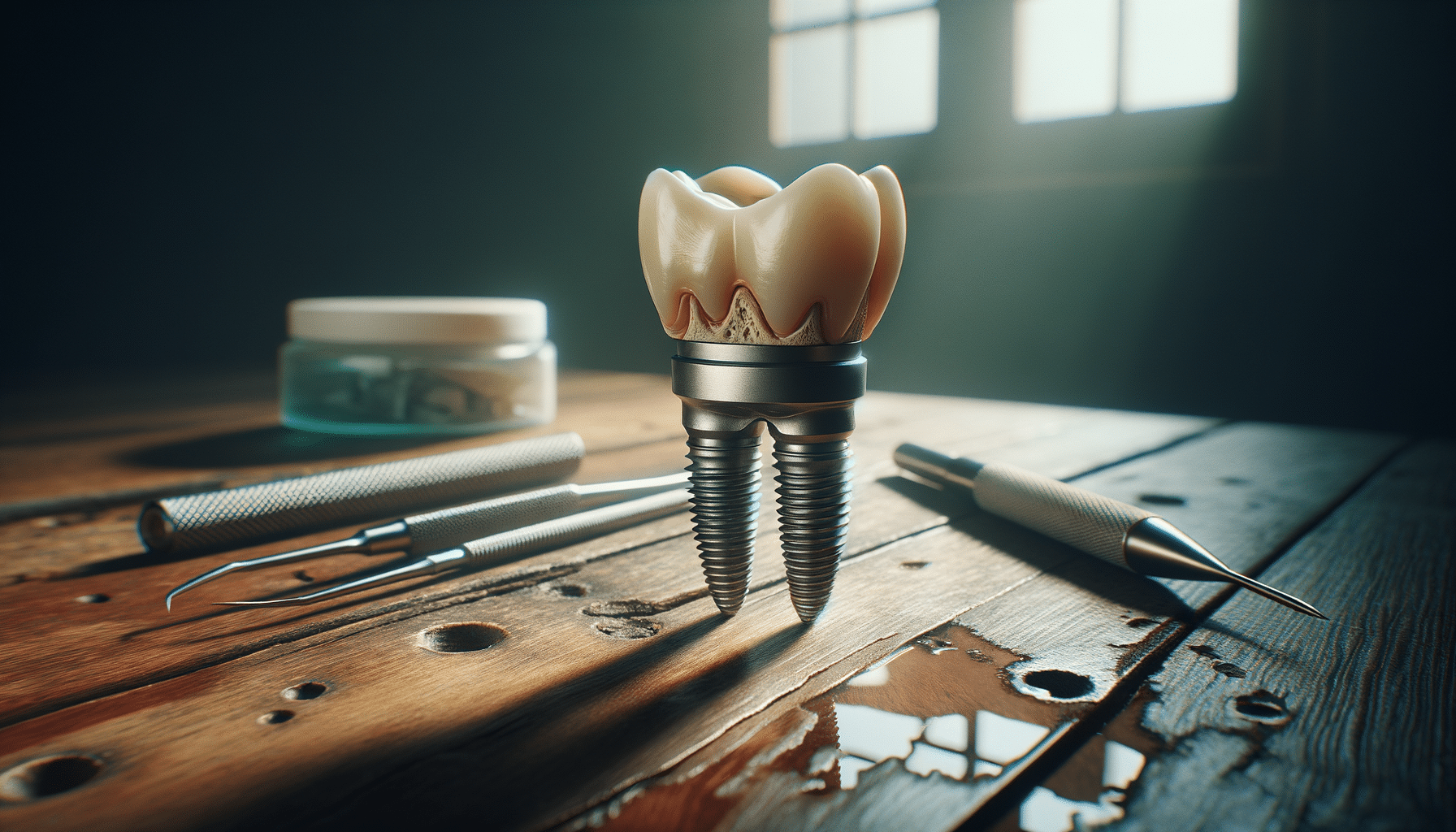
Dental implants
Introduction to Dental Implants
Dental implants have become a cornerstone in restorative dentistry, providing a robust solution for those seeking to replace missing teeth. They are revered for their durability and the natural appearance they offer, making them a highly regarded choice among dental patients. But how long do dental implants last, and what factors influence their longevity? Understanding these aspects is crucial for anyone considering this restorative procedure. With proper care, dental implants can last a lifetime, although their lifespan generally ranges from 10 to 30 years.
Dental implants consist of a titanium post that is surgically placed into the jawbone, acting as a root for the replacement tooth. This integration with the bone, known as osseointegration, is critical for the implant’s stability and longevity. The crown attached to the implant mimics the appearance and function of a natural tooth, allowing individuals to eat, speak, and smile with confidence.
The longevity of dental implants is influenced by various factors, including the patient’s oral hygiene practices, the quality of the jawbone, and overall health. In this article, we will explore these factors in detail, providing insights into how patients can maximize the lifespan of their dental implants and ensure they remain a durable and effective option for enhancing function and appearance.
Factors Affecting the Lifespan of Dental Implants
Several factors play a role in determining how long dental implants will last. One of the most significant factors is oral hygiene. Maintaining good oral hygiene is crucial for preventing infections that can compromise the implant’s stability. Patients are advised to brush and floss regularly, use antibacterial mouthwash, and attend regular dental check-ups to ensure the health of their implants.
Another critical factor is the quality of the jawbone. Adequate bone density is necessary for the implant to fuse properly with the jawbone. If the bone quality is poor, additional procedures such as bone grafting may be required to ensure the implant’s success. The overall health of the patient also plays a significant role. Conditions such as diabetes and smoking can impede the healing process and increase the risk of implant failure.
Other factors include:
- The skill and experience of the dental surgeon: A skilled surgeon can optimize the placement and integration of the implant.
- The type of implant used: Different types of implants may have varying lifespans depending on their design and material.
- Patient’s lifestyle: Habits such as grinding teeth can put additional stress on the implant, potentially affecting its longevity.
By understanding these factors, patients can work with their dental professionals to develop a care plan that maximizes the lifespan of their implants.
The Process of Dental Implant Placement
The process of placing dental implants involves several stages, each crucial for ensuring the implant’s success and longevity. Initially, a comprehensive assessment is conducted to determine the patient’s suitability for implants. This includes evaluating the bone density and overall oral health.
Once deemed suitable, the implant placement begins with a surgical procedure where the titanium post is inserted into the jawbone. This is followed by a healing period, typically ranging from a few months to over half a year, depending on individual healing rates. During this time, the process of osseointegration occurs, where the bone grows around the implant, anchoring it firmly in place.
After successful integration, an abutment is attached to the implant post, serving as a connector between the implant and the crown. The final step involves placing the custom-made crown, which is designed to blend seamlessly with the patient’s natural teeth.
This meticulous process is vital for ensuring that the dental implants can withstand the forces of biting and chewing, thus enhancing their durability and lifespan. The precision involved in each step underscores the importance of choosing a qualified dental professional for the procedure.
Maintaining Dental Implants for Longevity
Proper maintenance is key to ensuring the longevity of dental implants. Unlike natural teeth, implants are not susceptible to cavities, but they are still vulnerable to gum disease. Therefore, patients must adhere to a rigorous oral hygiene routine to protect the surrounding tissues.
Regular dental check-ups are essential for monitoring the health of the implants and the surrounding gum tissue. During these visits, dentists can identify early signs of potential issues, such as peri-implantitis, an inflammatory condition that can lead to implant failure if not addressed promptly.
Patients should also be mindful of their diet and avoid excessive consumption of hard or sticky foods that could damage the implants or crowns. Additionally, using protective gear such as mouthguards during activities that involve physical contact can help prevent accidental damage to the implants.
By following these guidelines, patients can significantly enhance the lifespan of their dental implants, ensuring they continue to enjoy the benefits of a restored smile for many years.
Conclusion: The Future of Dental Implants
Dental implants represent a remarkable advancement in restorative dentistry, offering a reliable solution for replacing missing teeth with a high degree of success. Understanding the factors that influence their lifespan and implementing effective maintenance strategies are crucial for maximizing their durability.
As dental technology continues to evolve, the materials and techniques used in implantology are expected to improve, potentially extending the lifespan of implants even further. For now, patients can take comfort in knowing that with proper care, dental implants can last many years, providing both functional and aesthetic benefits.
For those considering dental implants, consulting with a dental professional to assess individual needs and circumstances is the first step toward a successful and long-lasting outcome. By investing in this advanced dental solution, patients can regain confidence in their smile and enjoy improved oral health.


